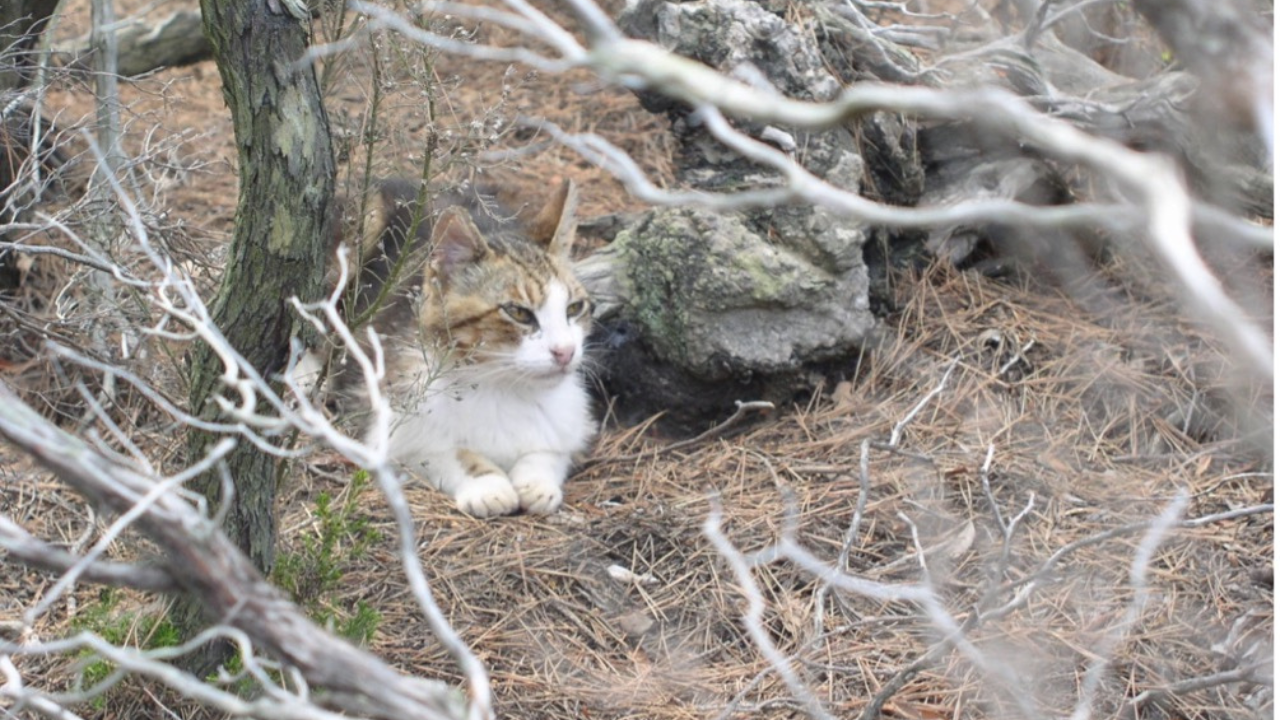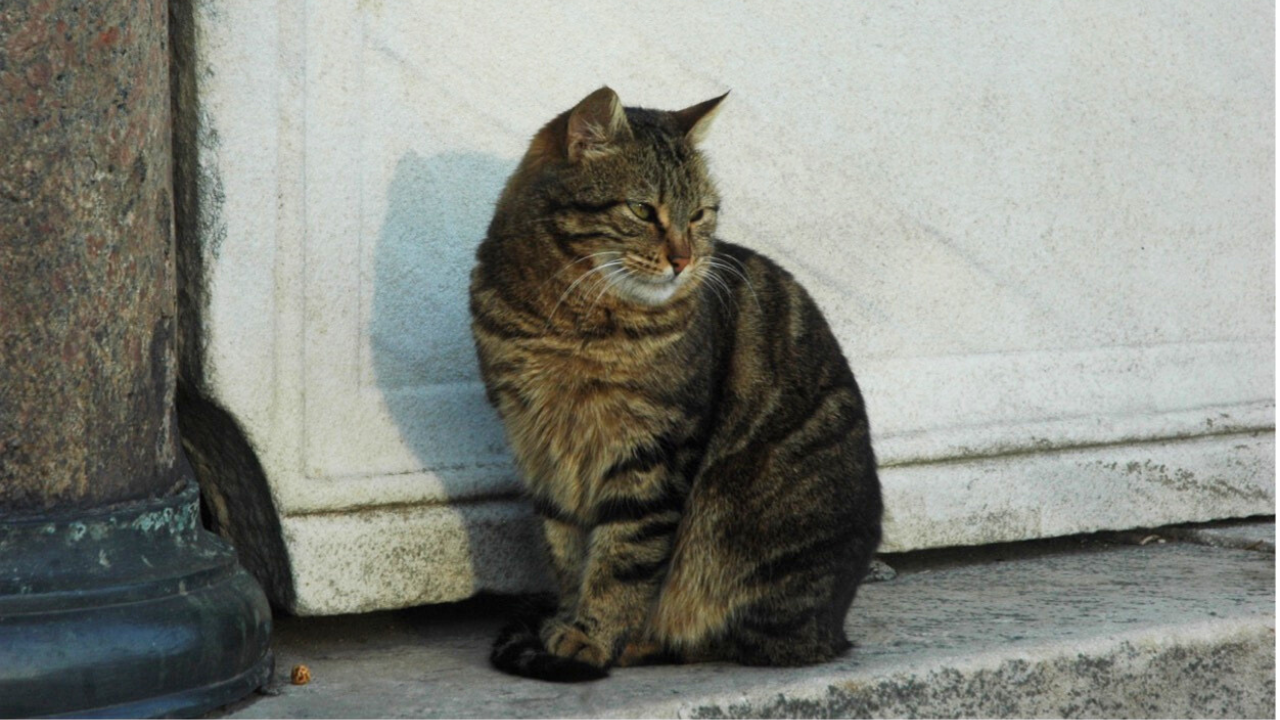Auburn Study Unveils Free-Ranging Cat Predation’s Global Biodiversity Impact
Researchers in Auburn University’s College of Forestry, Wildlife and Environment (CFWE) have co-authored a study about the dietary breadth of free-ranging cats and the impact of their predation on global biodiversity.
Recently published in Nature Communications, the study unveils the global impact of free-ranging house cats (Felis catus) on biodiversity by comprehensively assessing the species they consume. The research study, co-led by Auburn professors Chris Lepczyk and Jean Fantle-Lepczyk, drew from over 150 years of data across hundreds of studies from around the world.
“Cats are generalist predators responsible for significant population declines and several species going extinct. Thus, we wanted to develop as complete a picture as possible of all the species they affect through predation and scavenging,” said Lepczyk.
 Free-ranging cat (Felis catus) hides among pine straw and limbs outdoors. Photo courtesy of Elsa Bonnaud.
Free-ranging cat (Felis catus) hides among pine straw and limbs outdoors. Photo courtesy of Elsa Bonnaud.
2,084 species have been documented to be consumed by outdoor cats, including 9% of all birds and 6% of all mammals in the world, which the researchers found surprising. Among the noted species, nearly 17% are recognized as being of conservation concern by the International Union for the Conservation of Nature (IUCN).
While cats are sometimes seen as consuming only common species or pests, such as rats, the authors discovered that cats are eating a diverse range of mammals, birds, reptiles, amphibians and insects of all sizes and abundances.
Cats are consuming the broadest array of species of any predator known. To compound the issue, their research suggests that more species are likely to have been consumed than have been documented so far, implying that the actual number of species consumed by cats is significantly larger.
Cats have long been known as predators, but this research illustrates that cats are not just eating a small set of species or are only problems on islands. Rather, cats are eating species in all the ecosystems of the world in which they are found. In revealing this impact, the study emphasizes the need to address the adverse effects of cat predation.
“Having a greater understanding of the species that cats affect can aid in both policy and management initiatives,” said Lepczyk.
 Free-ranging cat (Felis catus) sitting on stone surface in Hagia Sophia, Istanbul. Photo courtesy of Christopher Lepczyk.
Free-ranging cat (Felis catus) sitting on stone surface in Hagia Sophia, Istanbul. Photo courtesy of Christopher Lepczyk.
The self-funded research study, conducted over 20 years, was co-authored by scientists including Kylee Dunham, a former CFWE graduate student now employed at the Cornell Lab of Ornithology, and international ecologists from France and Australia.
“The team’s insights into the indiscriminate predatory behavior of cats underscore the importance of preserving biodiversity,” said Janaki Alavalapati, the Emmett F. Thompson Dean of the College of Forestry, Wildlife and Environment. “We hope this research will inspire the development of policies and management strategies to mitigate the broader ecological implications of free-ranging cats.”

